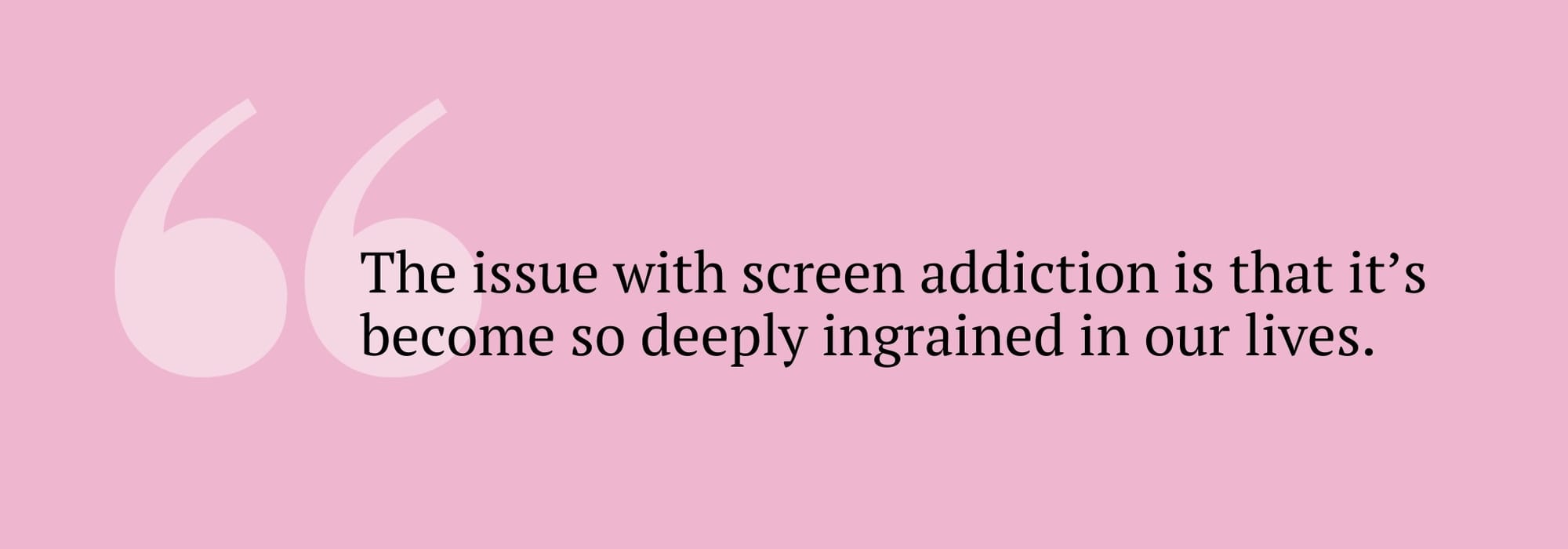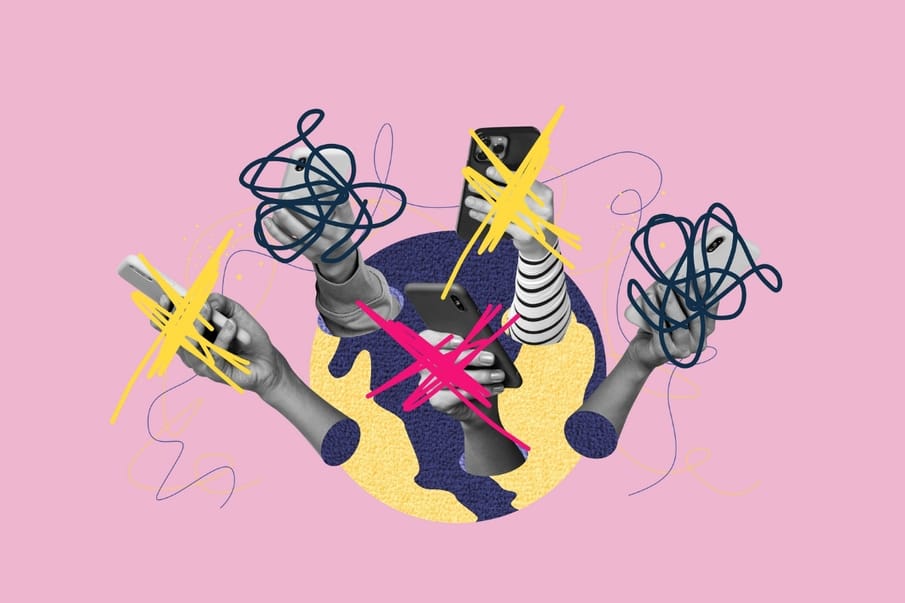In a bid to break some testy tech habits, Lucy Pearson headed to a tech-free retreat. Here’s what she learnt along the way…
With a 2024 Ofcom Online Nation report showing that UK adults are spending an average of four hours and 20 minutes each day online across smartphones, tablets, and computers (a jump from three hours and 41 minutes in 2023), it’s clear our digital dependency is quickly spiralling out of control.
From doomscrolling to online banking, learning languages, and more, it’s hard to imagine a life where our phones don’t dominate our every day. But as studies increasingly show not just mental implications (like anxiety, depression, and stress) but also physical (poor posture) and emotional ones (low self-esteem), isn’t it time we reconsider our relationship with our phones? Time, after all, is our most precious asset. Do we really want to look back on lives consumed by hashtags and influencers that offer little meaning or impact on how we truly want to live?
I’m just as guilty as the next person of spending too much time on my phone. I reach for it when I first wake up, doomscroll during the day when I should be working, and blatantly ignore the (on all accounts, quite generous) two-hour social media time limit I’ve installed in a bid to curb my addiction. I do it knowing how harmful it can be. I mean, who among us can honestly say they feel good after losing an entire afternoon to the ‘trad wife’ movement on TikTok?
The real issue with screen addiction is that it’s become so deeply ingrained in our lives. It’s normal to see toddlers glued to iPads. It’s not unusual to see couples at fancy restaurants more absorbed in their phones than each other. And now, with wifi available on the underground and aeroplanes – once sacred, phone-free spaces – how on Earth do we break the habit?

As someone who no longer wants to be tethered to the constant bing, bing, bing-ing of notifications, I flew to Clinic Les Alpes, a rehab centre nestled in the Swiss Alps, to discover just how damaging our tech addiction has become – and what we can do to reclaim our attention and, more importantly, our time.
Unlike other addictions, such as substance abuse or alcoholism, technology and screen addiction isn't currently classified as a medical condition. This lack of a formal, diagnosable framework often makes it hard to know when your usage has crossed the line to problematic behaviour. But when I raised this concern before flying to Switzerland, the answer was simple: if you’re questioning whether your phone use is problematic, that means it probably is.
The reality is, many of us are spending upwards of six hours a day on our phones – a habit I’m guilty of myself. When you stop to think that this is nearly as much time as we spend sleeping, it’s clear our addiction has hit its peak. The constant pull of our devices, the endless scrolling, the infinite notifications – we’re handing over swathes of our most valuable resource to tech bros driving Teslas.
Naturallly though, recognising the problem is one thing; resolving it is another. In a world overwhelmed by technology, how do we navigate it while fostering a healthier relationship with our phones?
During a session with Brittany Hunt, a clinician at Clinic Les Alpes specialising in addiction treatment, we delved into my relationship with my phone. While having access to an addiction specialist is a privilege that not everyone can afford, the process is pretty easy to replicate at home.
First, try identifying when and why you find yourself reaching for your phone. For me, it’s often when I’m procrastinating before a looming deadline. You might reach for your phone when you’re bored, stressed, or feeling lonely or anxious. Recognising the moments when you’re most prone to doomscrolling is the first step toward cultivating a healthier relationship with technology. If you’re feeling lonely, arrange to meet a friend for coffee. Stressed? Try doing a meditation or some mindful breathing.

Don’t be embarrassed to set boundaries to curb your phone usage. Brittany emphasises the importance of creating phone-free spaces. Rather than seeing this as deprivation, reframe it as dedicated time for yourself. You’ll soon notice a positive impact not only on your productivity, but also on the quality of your relaxation.
During my stay in Switzerland, equine therapy and a forest hike were cancelled due to heavy fog and rain, so I opted for art therapy and a stretching class instead. These hands-on activities required presence and mindfulness, serving as the kind of distractions we should seek out more often as a way to spend time away from our phones.
Patrick Wilson, founder of Clinic Les Alpes, has a sage question for anyone reassessing their relationship with their phone: “What price are you willing to pay?” he asks. Because, let’s face it, many of us suffer from poor sleep, heightened anxiety, and strained relationships with loved ones, all for the sake of mindless scrolling. He emphasises that building a healthier relationship with our phones requires setting realistic goals and embracing small, gradual changes rather than striving for perfection.
By adopting these strategies, we can reclaim our time and wellbeing, paving the way for a more balanced reality, one rich with appetite and wonder, rather than succumbing to life eagerly waiting for the next notification on our phone.


Comments